- Home
- Iris Murdoch
The Red and The Green Page 24
The Red and The Green Read online
Page 24
Pat turned away. He was silent for a moment. ‘Well, that’s gone.’
‘Yes, it’s gone all right! And they’ve got Casement.’
‘Casement? But Casement isn’t in Ireland.’
‘He is now. He’s in the R.I.C. barracks at Tralee. The Germans landed him from a submarine and he walked straight into the arms of the police.’
‘Oh God,’ said Pat. ‘Casement.’ He sat down heavily in a chair. ‘They’ll hang him.’ He covered his face with his hands.
Christopher was in a state of intense excitement which he hardly himself understood. He had comforted Kathleen, but after she had gone he had suddenly felt quite certain that she was right. MacNeill evidently knew nothing of it, but it now seemed to him obvious that if violence was planned MacNeill would know nothing of it. Something was going to happen. The certainty came upon him not as a thought-out conclusion but more like a physical visitation, making him leap to his feet and gasp and tremble; and like a man for whom an ambiguous picture has abruptly shifted he saw only the new shape and could not now recapture the old.
Christopher had always played the cynic in political discussions. But in fact, though this would not have led him to lift a finger himself, he felt a strong romantic sympathy with the whole tradition of rebellion in Ireland and with the Sinn Feiners as the present representatives of that tradition. He loved the history of Ireland as if it were a personal possession; and although he freely mocked the person of the ‘tragic woman’, there was more than a touch of heated gallantry in his reaction to the whole miserable story. He enjoyed here an indignation which he kept entirely private. Like many scholars who ostentatiously eschew the field of action, he had a strongly developed sense of the heroic. While with the sensibility of an artist he apprehended an epic splendour always latent in the tragedy of Ireland.
Now he felt in the most terrible confusion. His misery, his fury at learning the news about the German arms, made him realize how utterly he identified himself with the rebels. He was desolated too by the plight of Casement, a man whom he greatly admired. His heart was already in revolt. Yet he knew too that whatever happened now could only be another miserable failure. He had lightly agreed to Kathleen’s request to ‘use logic’ with Pat; but now that he saw the boy in front of him, illuminated in Christopher’s sensitive vision by the bright light of history, he could not think what to say, nor what to do with the sudden tumult of energy with which the new situation had filled him.
‘Yes, they’ll hang Casement,’ he said to Pat. ‘They’ll hang you all. If you want to end your young life on an English gallows, you’re certainly going the right way about it.’
Pat lifted his head and smiled slightly. ‘Don’t worry. They won’t hang us, they’ll shoot us. After all, we are soldiers.’
‘They won’t treat you as soldiers. They’ll treat you as murderers. They’ll treat you as rats.’
‘They’ll soon find out we’re soldiers. Where did you hear this about Casement? I suppose it’s true?’
‘I heard it at MacNeill’s. I’m very sorry about Casement. But, oh, that you should have muffed those arms—!’
‘I don’t understand about the arms ship,’ said Pat, ‘but our men in Tralee will rescue Casement.’
‘You won’t have time. You’ll all be disarmed by tonight.’
‘Then we’ll all be fighting by tonight. You’ll keep your mouth shut about what my mother said just now?’
‘Yes, I will, God forgive me, but I think you’re insane.’
‘I don’t think they will jump on us before tomorrow. We may be stupid, but they’re stupider. What is it, Mother?’
Kathleen had opened the door. She went up to her son and struck him fiercely upon the arm. ‘Someone has just seen Cathal going away down the road with a rifle—’
Pat put her aside and left the room at a run.
Chapter Eighteen
PAT had put off solving the problem, had put it off because he could see no solution. In a way he simply could not think about Cathal at all, could not treat him as an object of rational reflection, could not put to himself questions of the form would this or that be ‘advantageous’ to Cathal. His brother had always been as close and as connected to him as his own hand. He had always associated Cathal with his view of his own life as if they looked out through the same eyes; and his long tyranny over him had been a form of self-discipline, and experience of living in two bodies. There would be, at moments, the sudden apprehension of the boy’s separateness, making him gasp with surprise as at a felicitous audacity. Then as they returned again into each other Pat would feel, in an easing and enlargement of time, his own childhood not only preserved and continued, but perfected.
Would he not have risked Cathal if they were to climb a mountain together or swim a flooded river together? He had indeed so risked him. But this was simply a way of risking himself, and in those open solitudes their joint strength and their youth had seemed invincible. Pat had always so closely associated Cathal in his mind with all his decisions, they had seemed to exist together in perfect unity at a level only a little below that at which they constantly bickered. Pat had indeed been aware of this unity simply as a sense of including his brother. So it was that even in this thing he had seemed to bring Cathal along with him, to bring him absolutely to the threshold over which he was now so determined not to take him.
Pat had of course asked himself if it were not really best after all to keep Cathal with him, to have him, in whatever ensued, positively beside him and under his eye. Then at least he could be sure the boy would do nothing insane: which if left uncontrolled he would be certain to do. But Pat knew at once how unrealistic this idea was. He could not help seeing the coming events in a heroic light; but he also knew, though not with his heart, that when these events arrived they would be incoherent and terrible. He would simply not be able to keep an eye on Cathal or to protect him. And to be less than single-minded would be a gross failure of duty.
Pat was well aware that he himself, at Cathal’s age, would have reacted in exactly the same way, and he asked himself whether, in trying to keep him out of the conflict, he were not somehow tampering with the boy’s honour. But he could not sufficiently make sense of this idea or see Cathal as having, in this respect, separate rights. If the boy had been a little older, even two years older, even perhaps one year older, the sacrifice would have had to be consented to, it would have had to be accepted as part of the ordinary world. Where he was together with his brother was still the sacred land of childhood.
It was not exactly that he wanted Cathal to survive him, that he wanted to keep that most precious piece of himself out of danger; nor did he care at all about his mother’s need for sons. He had a deeper, more physical, sensation of being, where Cathal was, entirely exposed and naked, and his instinct was to hide and cherish this unprotected part. He wanted to stand entirely in front of Cathal, to shield him completely, to press him back behind him into a place of safety. He was ready to expose himself to the English bullets, he had thought about them often enough, and it was as if he were already physically hardened, a veteran of the imagination. But the idea that any harm might come to his brother made him writhe and shrink. It made an utter coward of him.
When Pat emerged into Blessington Street there was no sign of Cathal anywhere and Pat began to run down the hill into a light misty rain which was materializing softly out of the warm air. It occurred to him that Cathal might have gone to confession at Saint Joseph’s Church in Berkeley Road. It was a time when confessions were heard there. And that day all over Dublin, as intimations of the morrow spread wider through all ranks of the movement, men in green uniforms were to be seen queuing up outside the confessionals. Pat himself had been to confess that morning; and it was possible that Cathal, apeing here his brother, or whichever of Connolly’s men was his latest mentor, had had the same idea.
Pat shouldered his way through the door into the stale incense-laden darkness of the church and peered abou
t him. The East window glimmered faintly, bleakly, above the Lenten simplicity of the high altar, and between vegetable pillars the many lights of adoration flickered, blue before the Queen of Heaven, red for Saint Joseph, and yellow for the Little Flower. A few old women, black murmuring bundles, crouched or trotted here and there, but the body of the church was full of men, and there was a deep buzz of men’s voices, only just quiet enough for reverence. Looking about him, Pat saw everywhere the uniforms of the I.C.A. and the Volunteers. The interior of the church seemed like a busy encampment. The chairs, which had been moved out of their neat rows, stood higgledy-piggledy, piled with knapsacks, with rifles leaning up against them; and the men waited in long patient lines beside the confessionals, or knelt among the chairs or out in the open aisles. The gathering seemed impromptu, unorganized, yet strangely solemn. The men bowed their heads low, or when they lifted them threw them back in a free way and their faces were clear and relaxed and seemed to shine in the darkness. The men smiled at each other as they passed, took hands in silence, or spoke briefly, holding each other’s shoulders. There was a sense of happiness in the church, a sense of all sins forgiven.
Pat pushed his way forward, brushing against people that he knew. As he passed the confessionals he scanned the army boots of various types whose soles were displayed while their owners murmured quietly to the priest. But in fact the queues were so long that Cathal would not have had time to get to the front. He passed through into the side chapel where innumerable candles, dazzling not illuminating, mingled with the dark without dispelling it, and God’s Blessed Mother, muffled from head to foot in purple cloth, leaned over him as he scanned the kneeling figures. Eyes which did not see him were lifted in the darkness and rosaries clicked, bumped on wooden chairs or trailed upon the floor as hands fell to sides in unconscious gestures of self-surrender. Cathal was not there.
Pat pushed his way back again through the murmuring shifting crowd, reached the door, and jostled out again, shading his eyes, into the very pale clear light of the late afternoon. The rain had just stopped and there was a diffused sunny atmosphere, thick and low, over Dublin, which made the pavements shine cruelly and outlined every brick in the façades of the houses. Pat started to run down the hill toward Rutland Square. Now he must go to Liberty Hall.
Thick and huge, gross with imperial confidence, the Pillar rose above Sackville Street, and from its summit Nelson gazed thoughtfully over the head of the Liberator to the Liffey and the masts of the ships and the open sea. The street was full of people, the usual Saturday crowds, ambling the pavements with deliberate slowness and trailing in slow mobs to and from the trams. Under the low ceiling of sunny light the voices of women and children were mainly heard, producing a continuous animated clacking. As Pat forced himself along, the surge of cheerful faces resisted him, clear detailed little human surfaces, glowing in the brightening air, thrust close up against him and jerked past. Frantic now with need and fear, Pat struggled on through the herd of happy people. He hated them all. Tomorrow this cackling would be put to silence and he would be separated from the like of these by a line of English soldiers. As he came to the middle of the street he looked quickly across at the Post Office.
Near to the Liffey the crowds were less dense and Pat turned to the left along the quay. The sun was coming out properly now, patterning the pavements with reflections and shadows, and there was a sky of the faintest feeblest blue above the glistening wet dome of the Customs House. As Pat approached Beresford Place he saw the gaping doorway of the Butt Bar and heard the sound within of drunken men singing the Soldier’s Song. Groups of men in Citizen Army uniform were standing about in the roadway. On the façade of Liberty Hall the dripping banner still proclaimed We serve neither King nor Kaiser but Ireland.
Then Pat saw Cathal, standing on the pavement opposite, underneath the shadow of the Loop Line railway, talking to one of Connolly’s men. He was holding the rifle awkwardly, like an acolyte holding a very large candle, and conversed with the man with a solemn air, nodding his head in an exaggerated way. As Pat drew near the Citizen Army man turned away, leaving Cathal, and made for the main entrance of Liberty Hall. Cathal stood still for a moment looking down at the rifle, hesitating whether to rest the butt of it upon the wet pavement. Pat recognized the gun as his own crack Italian rifle which Cathal had evidently purloined from his room. Pat crossed the road at a run and almost cannoned into his brother. He took the rifle lightly out of his hand and struck Cathal hard across the side of the face. Then he took Cathal’s wrist in a firm grip and began to pull him back in the direction of the quay. Cathal resisted him and began to sob.
As Pat forced him along, ignoring the sobs, a large group of uniformed men were seen approaching Liberty Hall at the double. They thrust Pat and Cathal back against the wall as they passed, and Pat saw the figure of James Connolly in the midst of them. As the bright light fell upon Connolly Pat felt a sudden shock of apprehension. Connolly’s face expressed an appalled shocked grief.
Following the group of men with Connolly came three Volunteer officers, all known to Pat and senior to himself. As he pressed forward now, still automatically dragging Cathal with him by the wrist, one of these, a man called Owen Magillivray, saw Pat and at once beckoned to him. Magillivray’s face expressed the same misery and shock. Pat and Cathal followed the Volunteer officers in through the door of Liberty Hall and on into a dark office where a number of men were talking in low agitated voices. Magillivray, shouldering the others aside, half pushed Pat into a corner of the room. He said nothing to him, but thrust a folded piece of paper into his hand. Pat fumbled it open and read. Owing to the very critical position, all orders given to Irish Volunteers for tomorrow, Easter Sunday, are hereby rescinded and no parades, marches or other movements of Irish Volunteers will take place. Each individual Volunteer will obey the order strictly in every particular. The signatures were those of MacNeill, MacDonagh and de Valera. The rising had been cancelled.
Chapter Nineteen
PAT DUMAY propped his bicycle against the wall and looked up at the darkened house. The moon, shining through a brown haze, was a large vague blur of light, seeming to move rapidly through the disturbed night sky. In this faint illumination Rathblane looked thicker, squatter, more like a fortress than a country house. Its shadow, an indeterminate hump or blot of darkness hanging from the walls, contained half of the expanse of rough grass, while on the other half, just fading into visibility, the sheep, grouped near the steps, were motionless, fuzzy, seemingly spherical. The windows of the house, very lightly smirched by the moon, bore upon their blackness little streaks and drips of light, as if some liquid silver had been thrown upon them and almost all washed away. Although it was not yet midnight the house and the countryside were deep, not exactly in sleep, but in trance. There was a profound silence in which the wall, the trees, the great black and grey block of the house, seemed submerged, more completely full and present than by daylight, as if the night and the stillness had filled them to the brim and weighted them with a quieter, denser element. The plantation beyond, faintly animate, seemed to breathe without moving, not exactly visible, but perceived in some further solidifying of murky air. Pat fingered the key in his pocket like a man fingering a weapon.
What had happened in the last two days in Dublin Pat had by now largely discovered. On Thursday a rumour had reached Bulmer Hobson that an armed rising was planned for Easter Sunday. He went at once to MacNeill, who was still of course the nominal head of the Volunteers, and in the early hours of Good Friday morning he and MacNeill visited Pearse, who admitted to them that the rumour was true. MacNeill said, ‘I will do everything I can to stop it, except ringing up Dublin Castle.’ There was a violent and inconclusive dispute after which MacNeill went home. A little later Pearse went with MacDermott and MacDonagh to MacNeill’s house to argue with him again. MacNeill refused to see Pearse and MacDonagh, but allowed MacDermott to come in. MacDermott told MacNeill that the rising was now unavoidable and that
the real command of the Volunteers was no longer in MacNeill’s hands. He also told him of the German arms which were about to be landed in Kerry, and pointed out that after the arrival of the arms the British were certain to attempt to disarm the Volunteers, and this would mean a fight anyway. So it was better to strike first. MacNeill gave in and agreed to sanction the rising.
On Saturday morning came the news of the catastrophe to the German arms ship. MacNeill began to waver. He was visited by the O’Rahilly and other officers who were opposed to the rising. At last he went to Saint Enda’s to see Pearse and there was bitter argument. After that MacNeill went home and wrote out countermanding orders which were dispatched with couriers to the Volunteer organization throughout the country. He prepared a statement, cancelling all ‘manoeuvres’, which was to be published in the Sunday Independent next day, and cycled personally to the office to deliver it. Finally he ordered MacDonagh, as commandant of the Dublin Brigade, to inform all his men officially of the cancellation. MacDonagh, who judged that by now the plan was irrevocably spoilt, agreed, and sent out a Brigade Order over his own signature and that of his adjutant de Valera. It was the end of the enterprise.

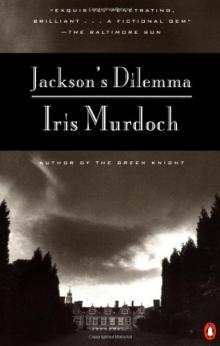 Jackson's Dilemma
Jackson's Dilemma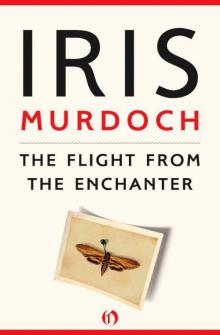 The Flight From the Enchanter
The Flight From the Enchanter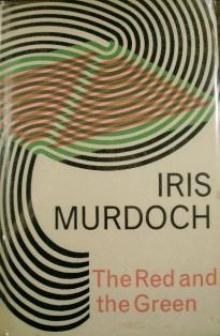 The Red and the Green (Vintage Classics)
The Red and the Green (Vintage Classics)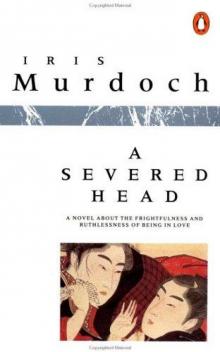 A Severed Head
A Severed Head The Black Prince
The Black Prince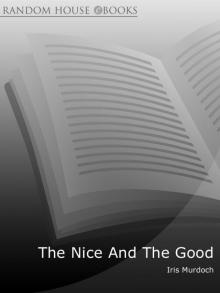 The Nice and the Good
The Nice and the Good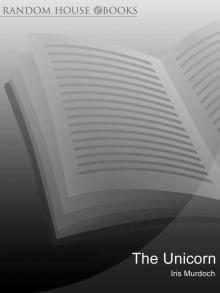 The Unicorn
The Unicorn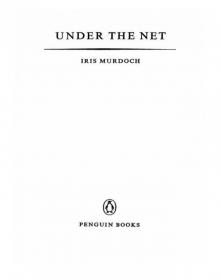 Under the Net
Under the Net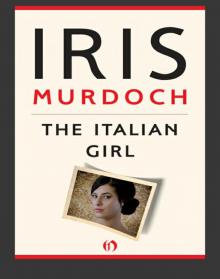 The Italian Girl
The Italian Girl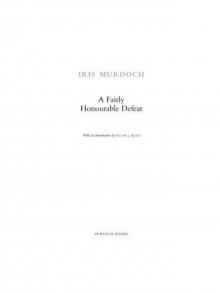 A Fairly Honourable Defeat
A Fairly Honourable Defeat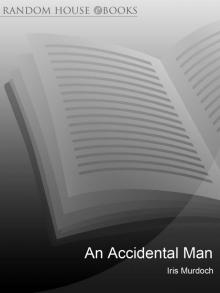 An Accidental Man
An Accidental Man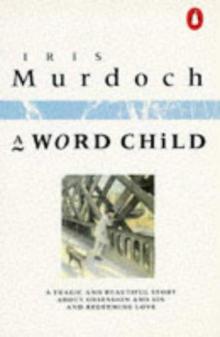 A Word Child
A Word Child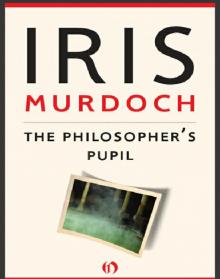 The Philosopher's Pupil
The Philosopher's Pupil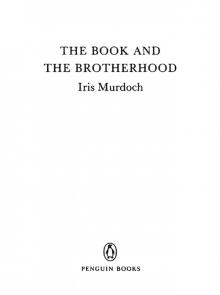 The Book and the Brotherhood
The Book and the Brotherhood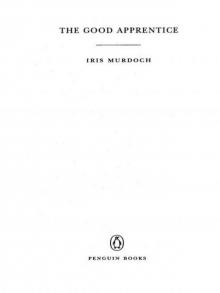 The Good Apprentice
The Good Apprentice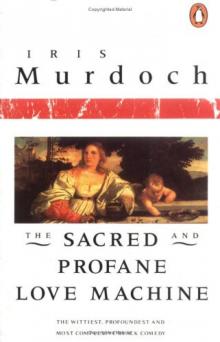 The Sacred and Profane Love Machine
The Sacred and Profane Love Machine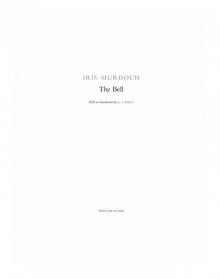 The Bell
The Bell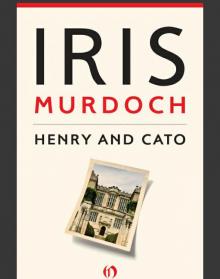 Henry and Cato
Henry and Cato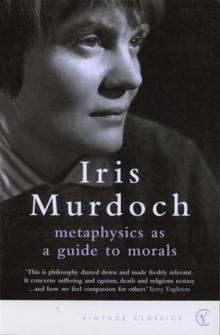 Metaphysics as a Guide to Morals
Metaphysics as a Guide to Morals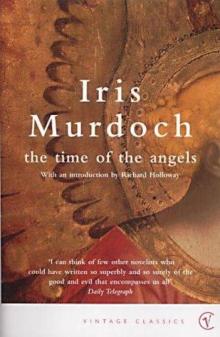 The Time of the Angels
The Time of the Angels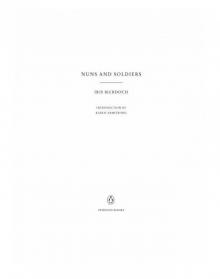 Nuns and Soldiers
Nuns and Soldiers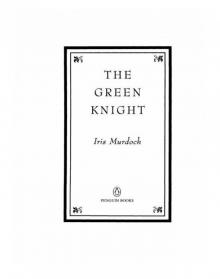 The Green Knight
The Green Knight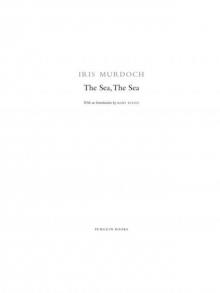 The Sea, the Sea
The Sea, the Sea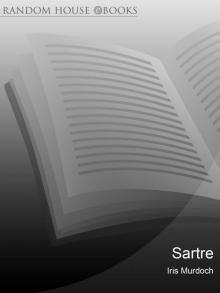 Sartre: Romantic Rationalist
Sartre: Romantic Rationalist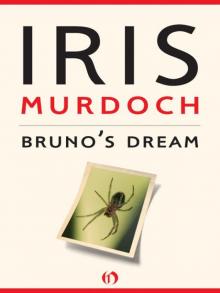 Bruno's Dream
Bruno's Dream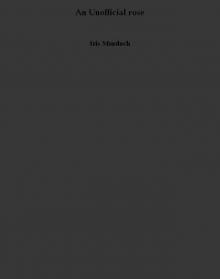 An Unofficial rose
An Unofficial rose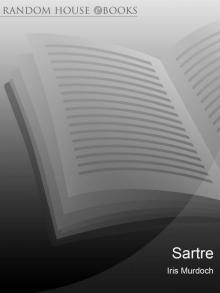 Sartre
Sartre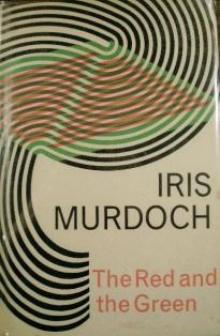 The Red and The Green
The Red and The Green